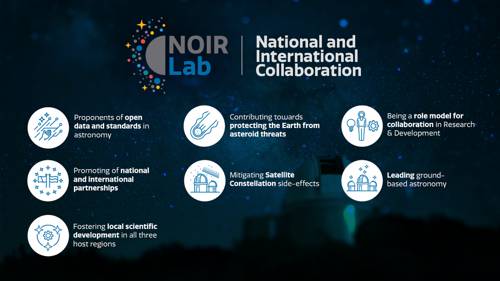
FAQ About The Role of Cross-Cultural Collaborations in Music Production

What is cross-cultural collaboration in music production?
Cross-cultural collaboration in music production refers to the practice where musicians, producers, and composers from different cultural backgrounds come together to create music. This collaboration typically involves blending diverse musical influences, instruments, and styles, leading to innovative and unique sounds.

Why is cross-cultural collaboration important in music production?
Cross-cultural collaboration is important because it fosters creativity and innovation in music. By bringing together different musical traditions and perspectives, artists can explore new sounds and create music that resonates with a broader audience. Additionally, such collaborations can promote mutual understanding and appreciation among cultures.

How do artists benefit from cross-cultural collaborations?
Artists benefit from cross-cultural collaborations by gaining new insights and inspiration from different cultural expressions. It provides an opportunity to expand their artistic repertoire, reach new audiences, and enhance their creativity by incorporating diverse musical elements. This often leads to the creation of more dynamic and appealing music.

Can cross-cultural collaborations influence mainstream music trends?
Yes, cross-cultural collaborations can substantially influence mainstream music trends. When artists successfully blend different cultural elements, they often introduce new styles, rhythms, and genres to the mainstream, broadening the scope of what is popular and increasing the diversity of available music.

What are some famous examples of cross-cultural collaborations in music?
Famous examples of cross-cultural collaborations include Paul Simon's work with South African musicians for his album "Graceland," the collaboration between English rock band The Beatles and Indian sitar virtuoso Ravi Shankar, and the song "Despacito" by Luis Fonsi and Daddy Yankee featuring Canadian artist Justin Bieber.

How do language barriers affect cross-cultural music collaborations?
Language barriers can pose challenges in cross-cultural music collaborations but can also add a unique dimension to the music. Artists often adopt creative approaches, such as blending languages or using music as a universal language to convey emotions and messages. This can lead to innovative lyrical content and broader audience engagement.

What role does technology play in cross-cultural music collaborations?
Technology plays a crucial role in facilitating cross-cultural music collaborations. It allows artists to record and produce music remotely, share ideas digitally, and use software to blend and experiment with different musical styles. Platforms like online collaboration tools and social media also enable artists to connect more easily across the globe.

How do cultural differences impact the music production process?
Cultural differences can impact the music production process by influencing the choice of instruments, styles, rhythms, and themes. These differences may require compromises and adaptability from artists to find a harmonious balance that respects each artist’s cultural identity while blending their elements creatively.

Are cross-cultural collaborations in music a recent phenomenon?
No, cross-cultural collaborations in music are not a recent phenomenon. Historically, music has been enriched by cultural exchanges, notably with influences from African, Asian, and Latin American music converging with Western music styles over centuries. However, contemporary globalization and technology have amplified and accelerated these collaborations.

What are the common challenges faced in cross-cultural music collaborations?
Common challenges include communication barriers, cultural misunderstandings, and differences in musical styles or working methods. Additionally, logistical issues such as coordinating across time zones and technological constraints can also pose difficulties. Overcoming these requires open-mindedness, collaboration, and effective communication among the artists.

How do cross-cultural collaborations enhance musical diversity?
Cross-cultural collaborations enhance musical diversity by introducing and blending distinct cultural sounds, rhythms, and instruments, thus creating new musical genres and subgenres. This not only diversifies the music available to audiences but also enriches the global music scene, inviting listeners to explore and appreciate different cultures.

Is cross-cultural music collaboration limited to certain music genres?
No, cross-cultural music collaboration is not limited to certain genres. It can occur across all music genres, from pop and rock to jazz and classical music. Each genre can benefit from the inclusion of diverse cultural elements, resulting in fresh interpretations and innovative compositions.

How do cross-cultural collaborations impact cultural perceptions?
Cross-cultural collaborations have the potential to positively impact cultural perceptions by fostering understanding and appreciation across different cultures. They break down stereotypes and promote diversity by highlighting the beauty and uniqueness of each culture involved, thus encouraging respect and inclusivity.

What is the future of cross-cultural music collaborations?
The future of cross-cultural music collaborations is promising, with continued globalization and technological advancements. Artists are expected to increasingly engage in collaborative projects, creating music that reflects a blend of global influences. This trend will likely lead to even greater innovation and diversity in the music industry.

How are cultural identities preserved in cross-cultural music collaborations?
Cultural identities are often preserved in cross-cultural music collaborations through the careful selection of instruments, rhythms, and thematic content that reflect each participating culture. Artists typically strive to honor and maintain their cultural heritage while engaging in a creative fusion that respects all involved identities.

Do cross-cultural collaborations in music face any criticism?
Yes, cross-cultural collaborations in music can face criticism, particularly if there is a perception of cultural appropriation or imbalance in representation between the collaborating artists. Genuine partnerships that respect and accurately represent cultural elements tend to mitigate such criticisms, ensuring a positive and respectful exchange.

How can artists ensure successful cross-cultural collaborations?
Artists can ensure successful cross-cultural collaborations by engaging in open communication, being respectful and sensitive to each other's cultural backgrounds, and maintaining a collaborative spirit. Understanding and appreciating each artist's style and contributions can facilitate a productive and harmonious working relationship.

What influence do cross-cultural collaborations have on world music?
Cross-cultural collaborations significantly influence world music by pushing its boundaries and enhancing its appeal globally. By incorporating global elements into music production, collaborations enrich the world music genre, making it more diverse and representative of various cultural traditions and innovations.

Can cross-cultural collaborations lead to commercial success?
Yes, cross-cultural collaborations can lead to commercial success by attracting a wider audience across different cultural demographics. Successful collaborations often yield hit songs that chart internationally, benefiting from their innovative sound and broad appeal. This commercial viability encourages more artists to pursue such projects.

What are the benefits of cultural exchanges within the music industry?
Cultural exchanges within the music industry lead to the creation of unique and varied musical pieces that resonate with global audiences. They foster creativity, strengthen industry relationships, promote international collaborations, and enhance cross-cultural understanding. This dynamic enriches the overall music ecosystem by ensuring a diverse and vibrant array of musical offerings.
